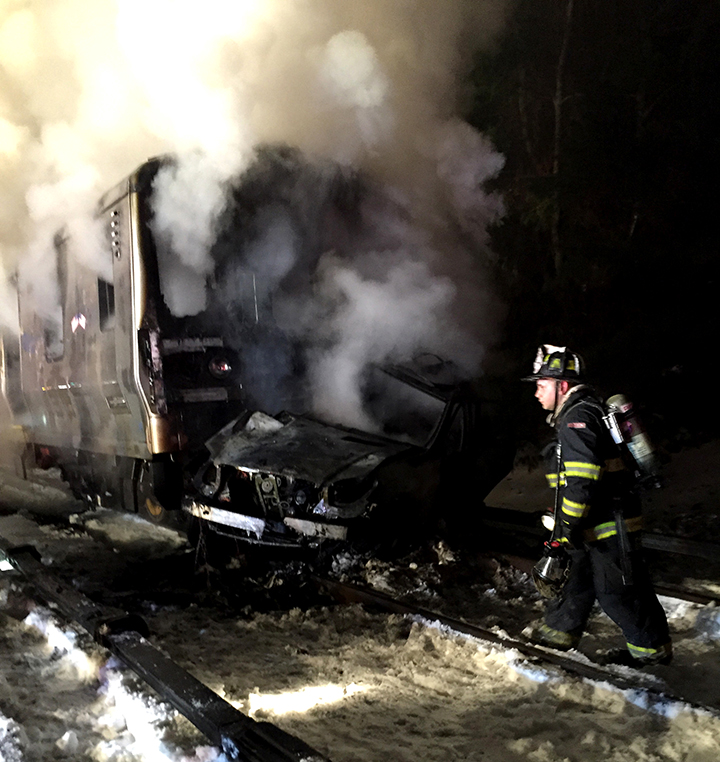
A commuter train in New York struck a vehicle stalled on the tracks Tuesday night, leaving six people dead in the worst accident of the Metro-North railroad's history.
Andrew Tangel and Leslie Brody of the Wall Street Journal reported that the driver of the sport-utility vehicle and five passengers on the train were killed by the accident. Officials at Westchester Medical Center declared a "mass casualty incident" shortly after the accident occurred.
"Many of us take Metro-North," Ivan Miller, director of the hospital's emergency department, said. "It does strike close to home."
According to the Wall Street Journal, 12 patients were treated for their injuries from the crash, which included lacerations, contusions, open fractures, dislocations, smoke inhalation and flame burns. As of Wednesday afternoon, hospital directors said that four of them were released, one was in critical condition, one was in serious condition, and the rest were either in fair or good condition.

New York Gov. Andrew Cuomo described the events surrounding the accident. He stated that the oncoming train pushed the stalled SUV about 400 feet; the vehicle later burst into flames and engulfed the front of the train.
"It was a really brutal, horrific accident," Cuomo said in a television interview Wednesday morning. "I've seen a lot of them, frankly, but this was as ugly as anything I've seen."
Westchester County Executive Rob Astorino provided more details on the horrific crash. He said in a Wednesday press conference that all five people killed on the train were in the first car.
"The inside of that first car is just melted and charred, with that first rail going through," Astorino said.
He later mentioned that due to the nature of the accident, it would take time to identify all of the victims involved.
"All the bodies are thoroughly burned so it's a process where the only way of identification is through dental records," Astorino said. "That process has to happen before they can be positively ID'd."
Sebastien Malo of Reuters reported that investigators from the National Transportation Safety Board will gather evidence from the scene of Tuesday night's crash and interview witnesses in the next week or so. Board member Robert Sumwalt added that useful information could be gathered from the highway signals, rail signals and crossing arms at the intersection since all of them have recording devices.
According to the Wall Street Journal, the New York governor indicated that it was unclear who might have been at fault in the crash.
"Sometimes accidents happen," Cuomo said. "This was a car that was stopped in the middle of the tracks. Now again, why? Was there something that happened at the crossing? That's possible and we'll find out."

Cuomo added that there was the possibility "that nothing extraordinary happened and someone made a mistake and was stopped on the tracks."
According to Reuters, Metro-North is the second largest commuter railroad in the United States. However, the Federal Railroad Administration conducted a safety assessment after it suffered four high-profile accidents back in 2013; it identified three main safety concerns in a March 2014 report to Congress.
"An overemphasis on time performance; an ineffective safety department and poor safety culture; and an ineffective training program," the FRA wrote in regards to safety concerns at Metro-North.
Reuters reported that the train, which carries commuters through affluent New York City suburbs, is used regularly by some 650 passengers.














